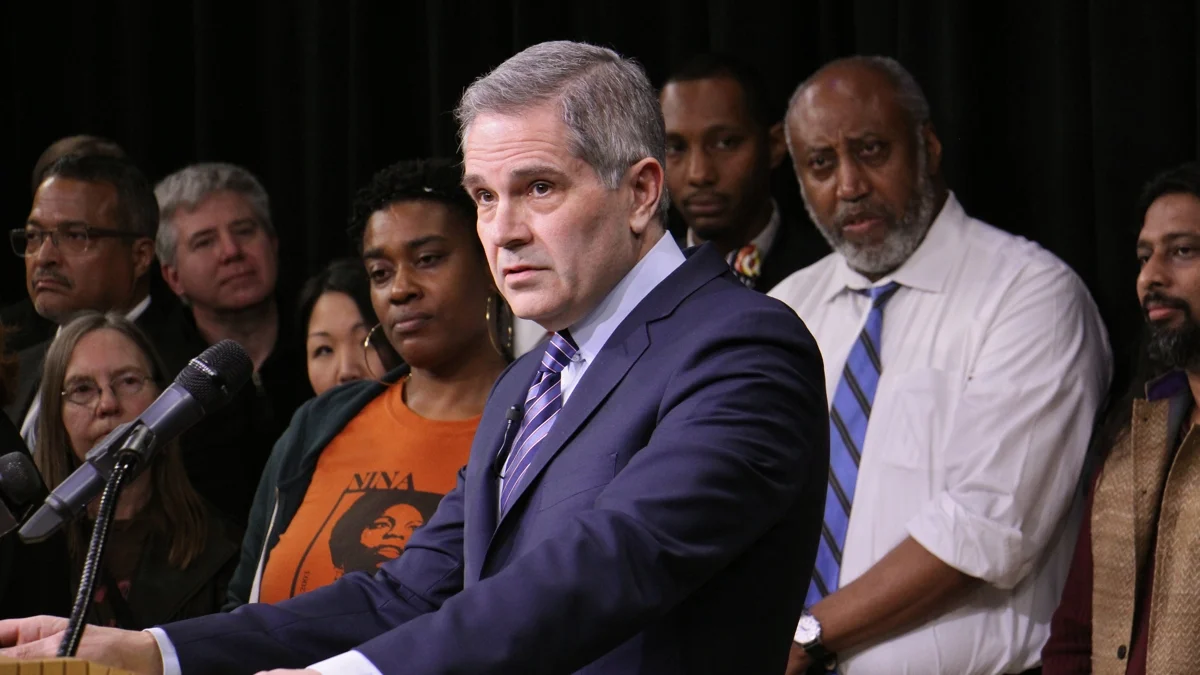When deciding whether to charge a police officer with murder, prosecutors are bound to a stricter standard than applies in other murder cases. But that could change under a bill advancing in California's state legislature.
Read MoreAmericans know that if they want a better criminal justice system, prosecutors must drive change. We’ve seen the result in election of more progressive prosecutors across the country. But what should this new wave of prosecutors do? What policies should shape their priorities?
Read MorePresident Trump’s former lawyer and fixer will serve three years in prison for campaign finance violations and other crimes, despite (sorta, kinda) cooperating with special counsel Robert Mueller's team. What did Michael Cohen tell them, and what did he leave out?
Read MoreSome district attorneys' offices keep secret lists of police officers who are not to be called to testify because their credibility is in question. How widespread is the practice?
Read MoreA new report from the Pennsylvania attorney general details how the Catholic church systematically covered up decades of sexual abuse by priests. In almost all of the cases, the abuse happened so long ago that the statute of limitations prevents prosecution of the abusers and their enablers. Or does it?
Read MoreIn the US, there have been almost two thousand wrongful convictions Yet in so many cases, prosecutors, police, judges and even defense attorneys simply refuse to acknowledge these catastrophic mistakes. Our guest – a former prosecutor – explains why we blind ourselves to these injustices.
Read MoreProsecutors must disclose any evidence that goes against guilt or lessens punishment. The Constitution says so. But some state laws allow them to withhold the evidence until just before trial, so defendant have to make plea decisions without it. This skews the whole system, and is long overdue for change.
Read MoreRecreational use of marijuana is still illegal in Pennsylvania. But increasingly, jurisdiction-level policy decisions are pushing cities toward decriminalization. This week, Philadelphia's newly-elected reformist D.A. announced his office is dropping all simple-possession marijuana cases. What's his reasoning, and how will the move affect policing?
Read MoreFor years, the Philadelphia District Attorney's office was notorious for heavy-handed and often racially discriminatory prosecution. As of this month, it's led by a former criminal defense attorney and activist elected with a mandate for reform. What can we expect from D.A. Larry Krasner, and what pitfalls may await him?
Read MoreU.S. Attorney General Jeff Sessions has rescinded an Obama-era policy directing federal prosecutors to de-prioritize enforcement of marijuana prohibition in states that have legalized the drug. Will the new directive slow the growing acceptance of legal weed among voters, states, and mainstream politicians? (Spoiler: It will not.)
Read MoreThree years after Ferguson, criminal justice reform has spurred discussion about police, courts and incarceration. PAC leader Whitney Tymas sees prosecutors as the key to fundamental change. She explains how her organization tackles local elections and what they’re trying to accomplish.
Read MorePolice have endured harsh public scrutiny over use of force cases, but prosecutors have also taken heat for choosing not to pursue cases when civilians are shot by police.
Older, traditional prosecutorial professional organizations, such as the National District Attorneys Association, have fought against any changes. But one group, the Association of Prosecuting Attorneys, has taken a more open approach, arguing for the importance of prosecutorial independence and transparency.
David LaBahn is the CEO and president for the Association of Prosecuting Attorneys.
Read More











